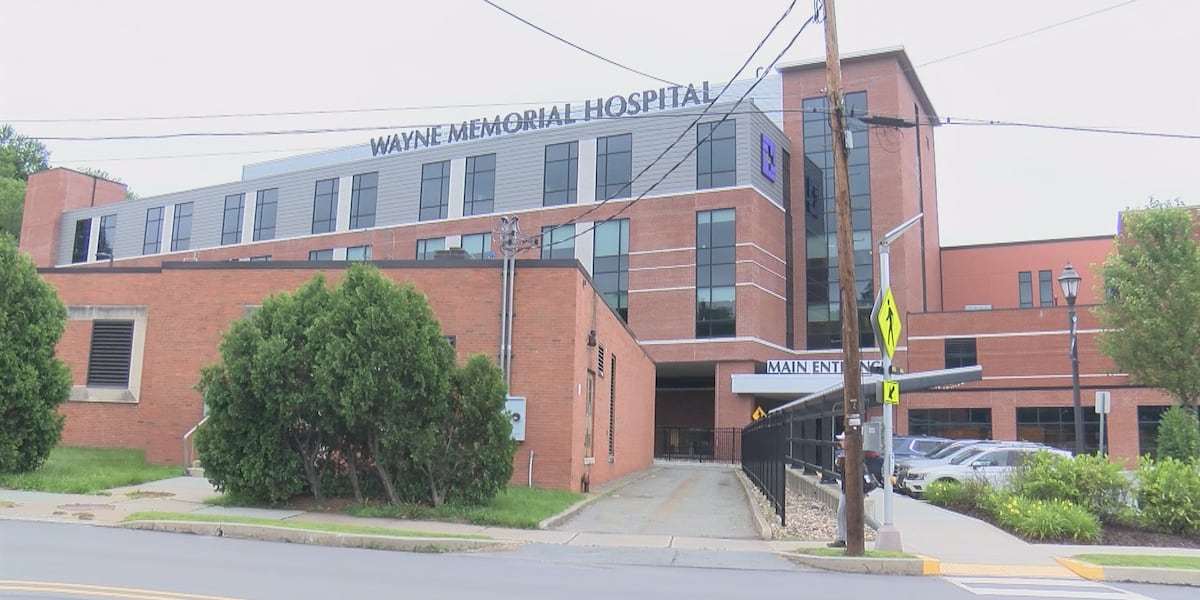Medicaid Cuts in Pennsylvania: A Crisis for Rural Communities?
2025-06-27

WBNG
Pennsylvania's rural residents are facing a potential healthcare crisis as proposed Medicaid cuts threaten access to vital services. A new bill could strip coverage from over 300,000 individuals and significantly increase premiums for those who remain insured. This article explores the devastating impact these changes could have on vulnerable populations and the future of healthcare in rural Pennsylvania.
The Looming Cuts: What's at Stake?
The proposed bill aims to overhaul Pennsylvania's Medicaid program, citing concerns about cost and efficiency. However, experts warn that the potential consequences far outweigh any perceived benefits. The most immediate concern is the loss of coverage for over 300,000 Pennsylvanians, many of whom rely on Medicaid for essential healthcare services, including doctor visits, prescription medications, and hospital care. Beyond those losing coverage, the bill is projected to dramatically increase premiums for the remaining Medicaid recipients, putting further strain on household budgets and potentially leading to delayed or forgone care.
Rural Communities: Disproportionately Affected
While the cuts will impact individuals across the state, rural communities are expected to bear the brunt of the impact. Rural areas often face unique healthcare challenges, including a shortage of healthcare providers, limited access to specialized care, and higher rates of chronic disease. Medicaid plays a crucial role in supporting these communities by providing access to care and ensuring the financial stability of rural hospitals and clinics. Reduced Medicaid funding could force these facilities to cut services, lay off staff, or even close their doors, further exacerbating the healthcare crisis in rural Pennsylvania.
The lack of access to affordable healthcare in rural areas can lead to delayed diagnoses, worsening health conditions, and increased emergency room visits, ultimately driving up healthcare costs in the long run. It also impacts the economic vitality of these communities, as a healthy workforce is essential for attracting and retaining businesses.
The Human Cost: Stories from the Frontlines
Beyond the statistics and policy debates, it's important to remember the human faces behind these potential cuts. Consider the single mother working multiple jobs who relies on Medicaid to provide healthcare for her children. Or the elderly veteran struggling to manage chronic health conditions on a fixed income. These are the individuals who will be most directly impacted by these changes, and their stories deserve to be heard. Local advocacy groups are already collecting testimonials from Pennsylvanians who fear losing their coverage and are urging lawmakers to reconsider the proposed bill.
What Can Be Done?
The future of Medicaid in Pennsylvania remains uncertain, but there are steps that can be taken to mitigate the potential harm. Advocates are calling for policymakers to explore alternative cost-saving measures that don't jeopardize access to care. They are also urging the public to contact their elected officials and voice their concerns. Furthermore, expanding access to affordable health insurance options through the Affordable Care Act could help cushion the blow for some individuals.
Ultimately, the decision rests with lawmakers. They must weigh the potential benefits of the proposed cuts against the devastating impact they could have on the health and well-being of Pennsylvanians, particularly those living in rural communities. The time to act is now, before it's too late to prevent a healthcare crisis.





